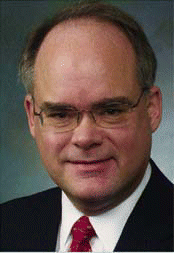Most of those interviewed for this article agree that the opportunity to grasp these commonalities grew from confronting a shared dilemma: the prospect of reduced reimbursements.
Explore This Issue
August 2007Strength in Numbers
“Sometimes,” said Jami Lucas, Executive Director of the AAOA, “the best impetus for unified efforts is to have somebody else be the ‘bad guy.’” That’s precisely what occurred in 1999 and 2000, when the Centers for Medicare and Medicaid Services (CMS), then the Health Care Finance Administration, moved to change the definition and interpretation of a common allergy code used by both general allergists and otolaryngologists who practiced allergy. “We found,” said Ms. Lucas, “that we were a stronger unit working together than working separately or even in parallel.”
Allergists and otolaryngologists have worked with the CPT Editorial Panel and the Relative Value Unit (RVU) committees as a combined front, said Dr. Krouse. “In the past, there was more of an ‘us versus them’ kind of thinking: ‘we do it [practice allergy] our way; you do it your way; we do it better than you do; and let’s set up a line in the sand.’ And that doesn’t help anyone. It certainly doesn’t help the physicians, and it doesn’t help the patients who we care for.”
Donald W. Aaronson, MD, JD, MPH, Executive Director of the Joint Council of Allergy, Asthma and Immunology, pointed out that all the related societies, which used to compete, “have recognized that we’re far better off in these [government and payer relations] arenas working together than working at opposite poles. It has happened certainly with ENT and I think we have very good relationships with the otolaryngologic allergists. It [increased cooperation] has also happened, from our perspective, with pulmonary physicians, because allergy is also involved with pulmonary diseases.”
“The ‘bad old days’ are gone,” declared Dr. Aaronson. “We still have some differences, but those are perfectly okay. We respect each other and we’re able to work around the differences, because we realize that what we’re doing is for the good of all the people who take care of patients with these diseases.”
Tensions at the Local Level
Will the increased cooperation at the leadership level translate to smoother relationships at the private practice level? According to Dr. Marple, “the answer is partially yes and partially no. In the Dallas/Fort Worth area, we have very strong relationships between otolaryngologists and allergists.” As a result, he said, allergy patients treated in that community do very well.


Leave a Reply